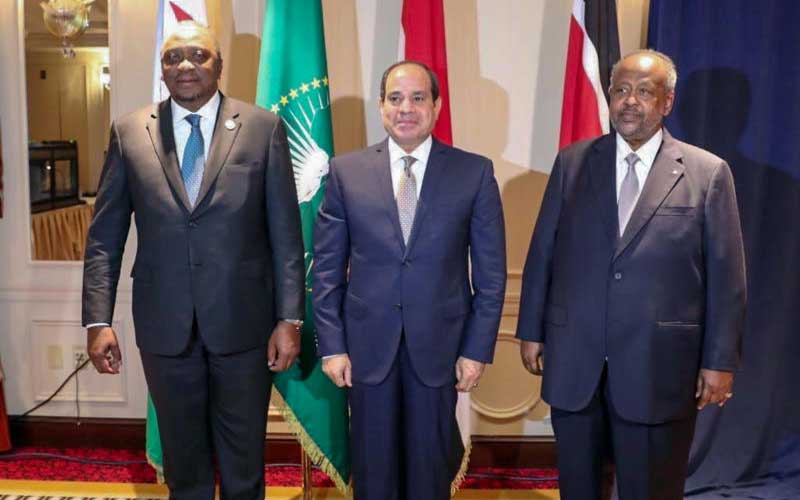×
The Standard e-Paper
Fearless, Trusted News

Last week, a beaming President Uhuru Kenyatta stood alongside Egypt’s Abdel Fattah al-Sisi as he held aloft the right hand of Somalia’s President Mohamed Abdullahi Mohamed Farmajo.
Foreign Affairs Cabinet Secretary Monica Juma termed the meeting “a step in the right direction” towards the restoration of the relationship between Nairobi and Mogadishu.